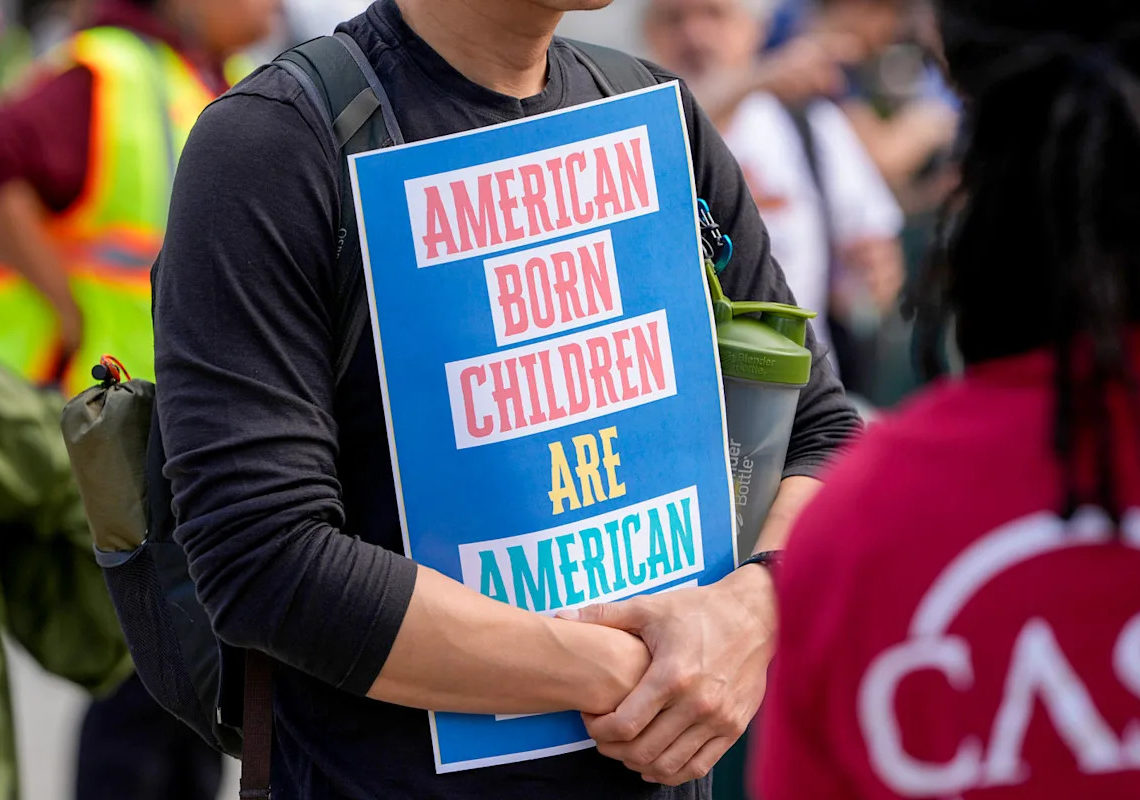A federal judge’s decision to temporarily prevent the Trump administration from stripping birthright citizenship for some babies born in the U.S. is an early test of the legal landscape, after the Supreme Court greatly restricted the ability of judges to issue nationwide blocks of presidential policies.
On Thursday morning, in New Hampshire, U.S. District Judge Joseph Laplante granted class action status to a lawsuit that seeks to protect babies who would be denied birthright citizenship, and granted a temporary block of President Donald Trump’s order from going into effect throughout the country.
The decision brought hope to pregnant women and groups who were dealt a blow two weeks ago when the Supreme Court largely restricted the ability of federal judges to use one of the strongest tools at their disposal — the use of nationwide injunctions to prevent federal policies from going into effect.
The Supreme Court decision would have allowed Trump’s executive order to go into effect on July 27 in parts of the U.S.
In the aftermath, immigrants and their attorneys pivoted to seeking class action status for immigrant babies and parents in hopes of finding another way to stop the president.
“It was clear that the Supreme Court decision had closed one very important door for challenging policies, but it also in the process opened other doors,” Muzaffar Chishti, a senior fellow with the Migration Policy Institute, told NBC News.
The Supreme Court has not yet ruled on whether Trump’s executive order is unconstitutional and multiple lawsuits challenging it remain ongoing.
But its decision on June 27 left open an important avenue for plaintiffs to try to stop federal government policies nationwide through the use of class action lawsuits.
“This case is an early test for how litigants will adapt to the legal landscape after the Supreme Court’s death blow to national injunctions,” Chishti said. “It normally takes months, if not years, for an altered landscape to be observed. But since this is such an important constitutional issue, we are getting a chance to revisit the landscape within two weeks.”
Under Trump’s plan, birthright citizenship would be limited to those who have at least one parent who is a U.S. citizen or permanent resident. The order also denies citizenship to children whose mothers are temporarily in the United States, including those visiting under the Visa Waiver Program or as tourists, or who are students and whose fathers are not citizens or lawful permanent residents.
In the written order issued Thursday, Laplante wrote that the court certified class action status to the following group in issuing the nationwide block of Trump’s order: “All current and future persons who are born on or after February 20, 2025, where (1) that person’s mother was unlawfully present in the United States and the person’s father was not a United States citizen or lawful permanent resident at the time of said person’s birth, or (2) that person’s mother’s presence in the United States was lawful but temporary, and the person’s father was not a United States citizen or lawful permanent resident at the time of said person’s birth.”
Laplante, who was appointed by President George W. Bush, had previously denied issuing a nationwide injunction in a similar case earlier this year. Instead, he had issued a narrower order where he only blocked the policy from being enforced on members of groups that would be affected by Trump’s order.
A ‘viable’ legal challenge
But his order on Thursday effectively blocked Trump’s executive order from being enforced nationwide, at least temporarily.
“This was a ruling that certified a preliminary class of folks across the nation from a judge who was skeptical of nationwide injunctions, and so I think it shows that the class action mechanism is a viable one, that courts are willing to entertain,” said Haiyun Damon-Feng, an immigration and constitutional law professor at Cardozo School of Law.
Cody Wofsy, the American Civil Liberties Union’s lead attorney in the case, said after Thursday’s court hearing that Laplante’s order was “going to protect every single child around the country from this lawless, unconstitutional and cruel executive order.”
White House spokesperson Harrison Fields said in a statement to NBC News that the decision was “an obvious and unlawful attempt to circumvent the Supreme Court’s clear order against universal relief.”
“This judge’s decision disregards the rule of law by abusing class action certification procedures. The Trump Administration will be fighting vigorously against the attempts of these rogue district court judges to impede the policies President Trump was elected to implement,” Fields said in the statement.
The Trump administration has seven days to appeal Laplante’s temporary block to a higher court, and the issue could find itself back at the Supreme Court to determine if the judge’s order complies with last month’s ruling.
“It’s not the end right of the birthright question. We are probably going to see more fights take place over procedure, over the question of class certification, as well as the question of birthright citizenship on the merits,” Damon-Feng said.
This article was originally published on NBCNews.com
The post How latest block of Trump’s birthright citizenship order tests legal landscape after Supreme Court ruling appeared first on NBC News.




